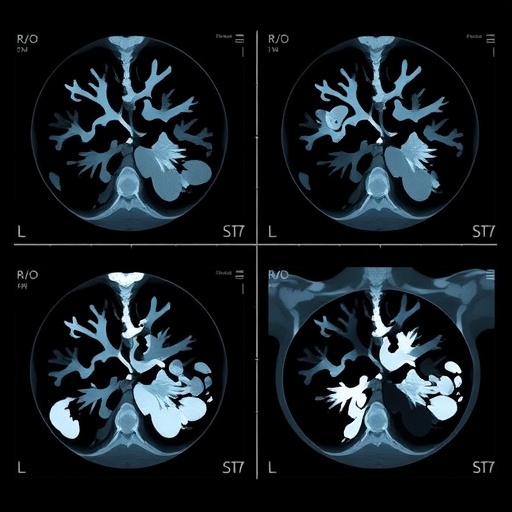In a groundbreaking study published in the esteemed journal “Radiology,” the Radiological Society of North America (RSNA) unveiled the impressive results from the RSNA Screening Mammography Breast Cancer Detection AI Challenge. This challenge was not just a competitive event but a collective endeavor that drew over 1,500 teams from across the globe, aiming to enhance the automation of breast cancer detection through innovative artificial intelligence (AI) algorithms. The research underscores the dual objectives of improving screening sensitivity and maintaining low recall rates—goals that are increasingly critical in modern medical diagnostics.
The study, spearheaded by Dr. Yan Chen from the University of Nottingham, showcases the excellent performance of AI algorithms in detecting breast cancer within mammography images. This research is particularly timely, as breast cancer remains one of the leading health challenges for women worldwide. With increasing incidences and a growing imperative for early detection, leveraging AI in this domain could revolutionize how healthcare providers diagnose and manage breast cancer, ultimately improving patient outcomes.
During the challenge, participants were tasked with developing AI models that could effectively identify cancerous lesions on mammograms. The training dataset provided by Emory University and BreastScreen Victoria consisted of approximately 11,000 breast screening images, enabling contestants to create algorithms capable of discerning subtle cues within mammographic data. This aspect of the challenge highlights the collaborative nature of modern research, wherein institutions combine their resources to push the boundaries of what is possible in medical imaging.
After the competition, Dr. Chen and his team meticulously analyzed 1,537 submitted algorithms. These algorithms were rigorously tested on a separate dataset included 10,830 single-breast exams with confirmed pathology results. The researchers found that the algorithms displayed impressive median specificity rates of 98.7% for ruling out the presence of cancer and a sensitivity rate of 27.6% for detecting malignancies. The recall rate—the proportion of cancers identified as positive by the AI—was low at 1.7%. When the top-performing algorithms were integrated, sensitivity figures jumped, offering a glimpse into the robust potential that AI holds in enhancing diagnostic capabilities.
Dr. Chen observed an interesting phenomenon regarding algorithm performance: the different AI models demonstrated complementary strengths in identifying various cancers. Many algorithms were optimized for specific predictive values and high specificity, leading to varied success across different cancer features. This highlights a significant advantage of employing ensemble methods—by combining multiple models, the performance can closely approximate that of an average screening radiologist, marking a notable milestone in AI-assisted diagnostics.
Furthermore, the study revealed key insights about algorithm performance variance based on imaging equipment, cancer type, and clinical contexts. Notably, the AI models showed a superior ability to detect invasive cancers compared to non-invasive forms, underlining the necessity for ongoing refinement in AI training and evaluation processes. This revelation is significant as early detection of invasive cancers can considerably improve treatment outcomes and patient survival rates.
The implications of these findings extend beyond the immediate research community, as many of the algorithms developed in the challenge are open-source. This accessibility allows for further refinement and adaptation by researchers and practitioners worldwide. By disseminating algorithms alongside comprehensive imaging datasets, the challenge fosters an environment of collaborative innovation, promoting advancements in commercial and experimental AI models geared towards mammography.
As the healthcare sector explores the integration of AI into clinical settings, benchmarking the performance of these algorithms against existing commercial products will be essential. Dr. Chen’s team is poised to undertake further studies aimed at comparing the top-performing algorithms from the challenge with established imaging technologies. Such evaluations will be foundational in establishing the credibility of AI tools in routine clinical practice.
Moreover, future research initiatives, such as those aligned with the PERFORMS scheme in the UK, will play a crucial role in evaluating the efficacy of AI models against robust human reader benchmarks. These studies are vital in determining how AI can complement human expertise, ensuring that the integration of technology enhances patient safety and care quality.
As this research unfolds, the anticipation surrounding each advancement in AI capabilities continues to build. The RSNA’s annual AI challenge not only catalyzes innovation but also sets a precedent for future collaborations aimed at solving pressing healthcare challenges. The successful application of AI in mammography could pave the way for broader adoption in other diagnostic areas, reshaping the landscape of medical imaging and diagnostics.
This landmark study exemplifies the intersection of technology and healthcare, showing how the synergy between AI and human medical professionals can lead to more effective cancer detection strategies. The potential for AI to transform the diagnostic process is immense, offering hope for more efficient screenings and improved patient outcomes in breast cancer care.
In conclusion, the RSNA Screening Mammography Breast Cancer Detection AI Challenge has unearthed exciting insights into the capabilities of AI in enhancing mammography efficacy. With continued research and collaboration, the integration of advanced AI technologies into clinical practice presents a hopeful frontier in the fight against breast cancer.
Subject of Research:
Article Title: Performance of Algorithms Submitted in the 2023 RSNA Screening Mammography Breast Cancer Detection AI Challenge
News Publication Date: 12-Aug-2025
Web References:
References:
Image Credits: Credit: Radiological Society of North America (RSNA)
Keywords
Breast cancer, Medical imaging, Mammography, Artificial intelligence




